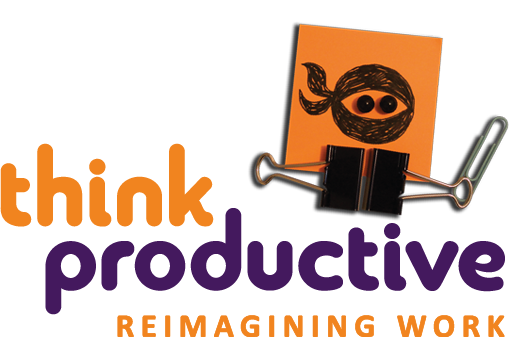How many of you log into your emails as soon as you get to work? Okay, once the kettle has boiled?
For most of us, checking our emails is a habit of daily routine and something we have trained our brains to do before starting any other task. Why? It’s easy, doesn’t require much brain power and leaves us feeling a bit less stressed if we’re met with an empty inbox by the time we go out to lunch.
But what happens if your inbox isn’t empty? Do you stay behind until it’s clear? Do you skip lunch all together? Since email is reactive, rather than proactive, it’s hard to simply reply to one message and then stop. Instead, your inbox ends up setting your agenda for the day, which, if full, can be dangerous for your productivity.
At Think Productive, we’re all for Getting Your Inbox to Zero, but it’s important that boundaries are set in order for your productivity to increase in the long term. The moment you allow yourself to skip lunch, you are allowing your work to interfere with your down time, when you should be giving yourself room to breathe. Before you know it, one 15 minute lunch leads to no lunch, which leads to staying late after work, or worse, bringing it home with you.
Checking email outside of work can intrude on your personal life
Picture this, you’ve got an exciting weekend planned with your friends, when you receive an email notification. It’s a client chasing up an email sent last week and asking for an update on a project proposal. This isn’t a lie in bed Saturday morning reply, but instead, requires you to open your work laptop, logon and get to the bottom of the problem immediately. ‘I won’t enjoy my weekend if I have this looming over me, so I’ll do it now’. The problem is, once you’ve logged into your emails you see ten more. A simple solution? Turn off email notifications when you’re not at work!
Too much work is bad for your health
Research suggests that too much sitting (which we do a lot of in offices) is linked to diabetes, obesity, cancer and heart disease. Studies have also shown that working overtime can lead to depression. And what happens when we work overtime? We get less sleep. Too little sleep can cause decreased memory, increased weight gain, irritability and mood problems, to name a few.

You are not in ‘work mode’ when responding
Your communication will not be as sharp when you are responding to an email out of office hours. Even without taking into account distractions like cooking dinner, or the TV playing in the background, your mindset is likely to be somewhere else when you’re at home doing other things. You don’t want to be dealing with work when you planned to have a relaxing evening, so chances are, you will be replying as fast as possible on autopilot, without really constructing an answer with the required detail.
Remember, you are in charge of your own schedule
Usually, when we bring work home with us, we are not doing it because we want to, but rather, because we feel under pressure to do so. Ever been on holiday and found yourself agitated at a colleague’s persistence in contacting you? Guess what, no one is forcing you to respond- rather, it’s a choice you are making. Similarly, your colleague does not expect you to respond when on holiday. Chances are, they are just going through their list of tasks that need input before ticking them off.

So, when should you check your email?
In order to limit the distractions of constant email notifications or the temptation to quickly respond to that last email, it’s best to schedule times to check your email, for example, once in the morning and once in the afternoon.
Also, try to get out of the habit of checking email first before you do anything else, and instead, get your most important task (or dreaded task, i.e. your frog) done first. You will feel a great sense of accomplishment and will be ready to tackle the rest of the day.
For more helpful tips, check out or website, or book a place on one of our email workshops: Getting Your Inbox to Zero and Email Etiquette.
By Emma Gibbins
